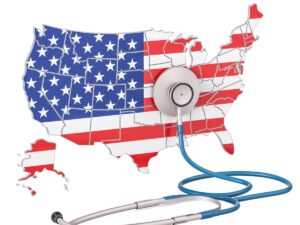https://theworldfinancialforum.com/participate/
US
US: The US Department of Health and Human Services has decided to cancel contracts and cease funding of mRNA vaccine development activities that were being developed to fight respiratory viruses like flu and COVID-19.
The biomedical research unit affected by the decision is Biomedical Advanced Research and Development Authority which helps companies to develop medical supplies to address health threats in the public, and it had provided billions of dollars for the development of vaccines during the COVID-19 pandemic.
We reviewed the science, listened to the experts, and acted. BARDA is terminating 22 mRNA vaccine development investments because the data show these vaccines fail to protect effectively against upper respiratory infections like COVID and flu. We’re shifting that funding toward… pic.twitter.com/GPKbuU7ywN
— Secretary Kennedy (@SecKennedy) August 5, 2025
With this decision, a total of 22 projects are set to be affected out of which some of those were being led by America’s leading pharmaceutical companies like Pfizer and Moderna to prevent flu, H5N1 and COVID-19 among others. The mRNA vaccines hold the credit for slowing down the coronavirus pandemic in 2020.
In the statement, Kennedy said he wants the health department to move away from the mRNA vaccines and called on the department to start “investing in better solutions.” “We’re shifting that funding toward safer, broader vaccine platforms that remain effective even as viruses mutate,” Kennedy said.
Kennedy refrained from providing details on what those technologies might be as he asked the health department to move away from the development of mRNA vaccines.
The health department added that it was also cancelling multiple pre-award solicitations, including proposals from Pfizer, Sanofi Pasteur, CSL Seqirus, Gritstone and others.
In a surprise policy move that has generated intense discussion across the medical, political, and public health sectors, US Health Secretary Robert F. Kennedy Jr. announced the cancellation of $500 million in federal funding for vaccine development programs. While the decision initially sparked concerns among some scientists and pharmaceutical stakeholders, the administration has framed it as a reallocation of resources toward broader health priorities and a more transparent approach to biomedical innovation.
According to Kennedy, the decision was not a rejection of vaccine science but rather a recalibration of how the government invests in disease prevention and treatment. “We are committed to safeguarding public health,” RFK Jr. stated, “but we also have to ensure that our investments reflect the most urgent needs, the most promising innovations, and the most transparent science.”
The $500 million, originally earmarked for multiple next-generation vaccine projects, will now be redirected into a diversified health initiative that includes strengthening hospital infrastructure, funding nutrition and preventive health programs, advancing antimicrobial research, and improving health access in underserved communities. This pivot aims to tackle some of the systemic weaknesses in the US health system that the COVID-19 pandemic exposed—such as supply chain vulnerabilities, workforce shortages, and uneven access to care.
Experts are divided on the move. Supporters see it as a bold and necessary step toward a more holistic public health strategy. They argue that while vaccines are vital, a disproportionate focus on them can overshadow other critical areas, such as early disease detection, public health education, and affordable treatment options. By reallocating these funds, Kennedy’s department hopes to stimulate innovation in areas where private investment is often lacking.
Critics, however, worry that reducing direct government investment in vaccine research could slow the development of solutions for emerging infectious diseases. They point out that certain vaccine breakthroughs, particularly for rare or less profitable diseases, rely heavily on public funding. Without it, progress might be delayed, potentially increasing vulnerability during future outbreaks.
The global reaction has been mixed but notable. Some international health agencies have expressed cautious optimism, suggesting that the US’s reallocation model could inspire other countries to diversify their health funding strategies. Others remain skeptical, emphasizing the importance of maintaining steady vaccine pipelines alongside broader health initiatives.
From a public communication standpoint, the administration has been clear in emphasizing that this is not a step away from science, but rather a step toward smarter, more impactful spending. By making the decision highly public and tying it to principles of transparency, accountability, and community health, Kennedy’s team hopes to reshape the conversation around how public funds are used in health policy.
If successful, this pivot could mark a turning point in how the US approaches disease prevention—expanding the definition beyond vaccines to include social determinants of health, infrastructure readiness, and integrated care. While the long-term impact remains to be seen, the move has undeniably sparked a renewed debate on what a balanced, future-proof health strategy should look like.

 U.S. Health Secretary Robert F. Kennedy Jr., who has been a vaccine critic himself for a long time, announced in a statement on Tuesday that $500 million worth of vaccine development projects, all under the mRNA technology, will be paused.
U.S. Health Secretary Robert F. Kennedy Jr., who has been a vaccine critic himself for a long time, announced in a statement on Tuesday that $500 million worth of vaccine development projects, all under the mRNA technology, will be paused.